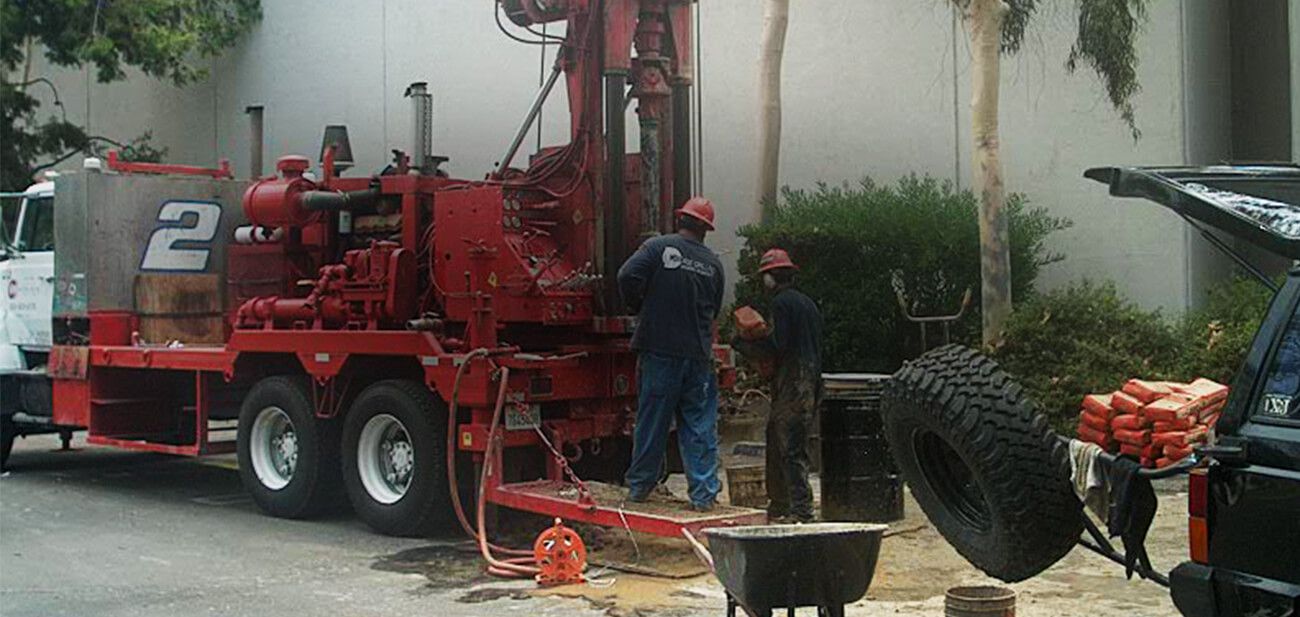
Constructing a building requires careful consideration of numerous factors, and among them, the soil upon which the structure will be built stands out as one of the most critical. The foundation soil types hold immense importance in establishing the stability and durability of the entire building. It is crucial to have a comprehensive understanding of the various soil types for construction and make a well-informed choice that guarantees a solid foundation. Recognizing the significance of this decision, G3Soilworks is dedicated to offering guidance and expertise in selecting the most suitable soil type for the construction of your specific building project, ensuring that your foundation is built on the right soil for long-lasting stability and structural integrity.
To make informed decisions about foundation soil types, it is important to have a basic understanding of the different soil compositions commonly found in construction sites. These soil types include clay, silt, sand, and gravel. Each soil type has distinct characteristics and properties that directly impact its suitability for construction purposes.
Clay soil is known for its high plasticity and water retention capabilities. When it comes to construction, clay soil can pose challenges due to its tendency to expand and contract with moisture variations. This characteristic makes it important to take specific measures to ensure stable foundations in clay soil construction projects.
Silt soil consists of fine particles and exhibits moderate water retention properties. While it is generally more stable than clay soil, it still requires careful consideration during construction to avoid settling issues and foundation instability.
Sand soil comprises larger particles and offers excellent drainage capabilities. Due to its coarse nature, sand soil allows water to pass through easily, making it a preferred choice for foundations in areas with high water tables or poor drainage.
Gravelly soil, as the name suggests, is characterized by larger, coarse particles. It provides good drainage and load-bearing capacity, making it suitable for construction projects that require stability and strength.
Before choosing the appropriate foundation soil types, a thorough site assessment is necessary. Soil investigations and tests conducted by geotechnical engineers help evaluate the soil’s properties, moisture content, compaction, stability, and presence of organic matter. By considering these factors, construction professionals can determine the most suitable soil for building foundations.
Once the soil types for construction have been identified, it is essential to match them with the appropriate building foundation. Each soil type requires specific considerations and techniques to ensure a stable and long-lasting structure.
In areas with clay soil, it is crucial to use foundation systems that accommodate its expansive and shrinkage properties. Techniques like moisture control, proper drainage, and deep foundations can help mitigate the challenges associated with clay soil construction projects.
For sandy soil, which has excellent drainage capabilities but relatively lower load-bearing capacity, foundation designs should focus on distributing the building’s weight evenly to avoid settlement issues. Implementing techniques such as mat foundations or deep pilings can help ensure stability in sandy soil construction projects.
Silty soil, being a fine-grained material, possesses moderate load-bearing capacity and requires careful consideration during foundation design. Measures like soil stabilization, compaction, and appropriate reinforcement can help mitigate potential settlement problems in silty soil construction projects.
Gravelly soil, with its excellent drainage and load-bearing capacity, is generally well-suited for construction. However, proper compaction and soil stabilization techniques are still necessary to maximize its potential for foundation support.
Choosing the right soil for your building foundation is a complex task that requires professional expertise. At G3Soilworks, our team of geotechnical engineers and soil specialists is here to assist you. We have the knowledge and experience to assess soil conditions accurately, recommend suitable foundation systems, and provide guidance on construction techniques specific to the soil types identified.
When it comes to building foundations, choosing the right soil type is a critical decision that can significantly impact the success and longevity of your construction project. At G3Soilworks, we understand the significance of this choice and are committed to assisting you in making informed decisions by finding out the most suited soil type for your construction project. By thoroughly evaluating the characteristics and properties of different soil types, such as clay, silt, sand, and gravel, and conducting a comprehensive site assessment, we can help you lay a strong and durable foundation for your building project. With our expertise and guidance, you can ensure that your foundation is tailored to the specific soil conditions, maximizing stability and minimizing potential risks. Trust in the knowledge and experience of G3Soilworks to provide you with the support you need for a successful and resilient construction project. Call us at 714-668-5600 to learn more about how we can help!
Q: Why is choosing the right soil important for building foundations?
A: The soil type directly affects the stability and durability of the structure. Choosing the appropriate soil ensures a solid foundation for your building, minimizing settlement issues and potential structural damage.
Q: What are the different types of soil commonly used in construction?
A: The common soil types for building foundations include clay, silt, sand, and gravel. Each soil type has unique properties that impact its suitability for construction purposes.
Q: How can G3Soilworks help in selecting the right soil for my building project?
A: G3Soilworks provides expert guidance and expertise in soil analysis and selection. Our team of professionals assesses site conditions, analyzes soil properties, and recommends the most suitable soil type for your specific building foundation, ensuring stability and durability.
Follow, engage, learn. Stop by our blog to see what’s happening at G3SoilWorks.
G3Soilworks – a full service geotechnical/ engineering geologic consulting firm serving clients since 2009 and delivering expert solutions with our highly experienced team and specialized consultants.
G3SoilWorks
350 Fischer Avenue Costa Mesa, CA 92626
Tel. 714.668.5600
E. info@g3soilworks.com